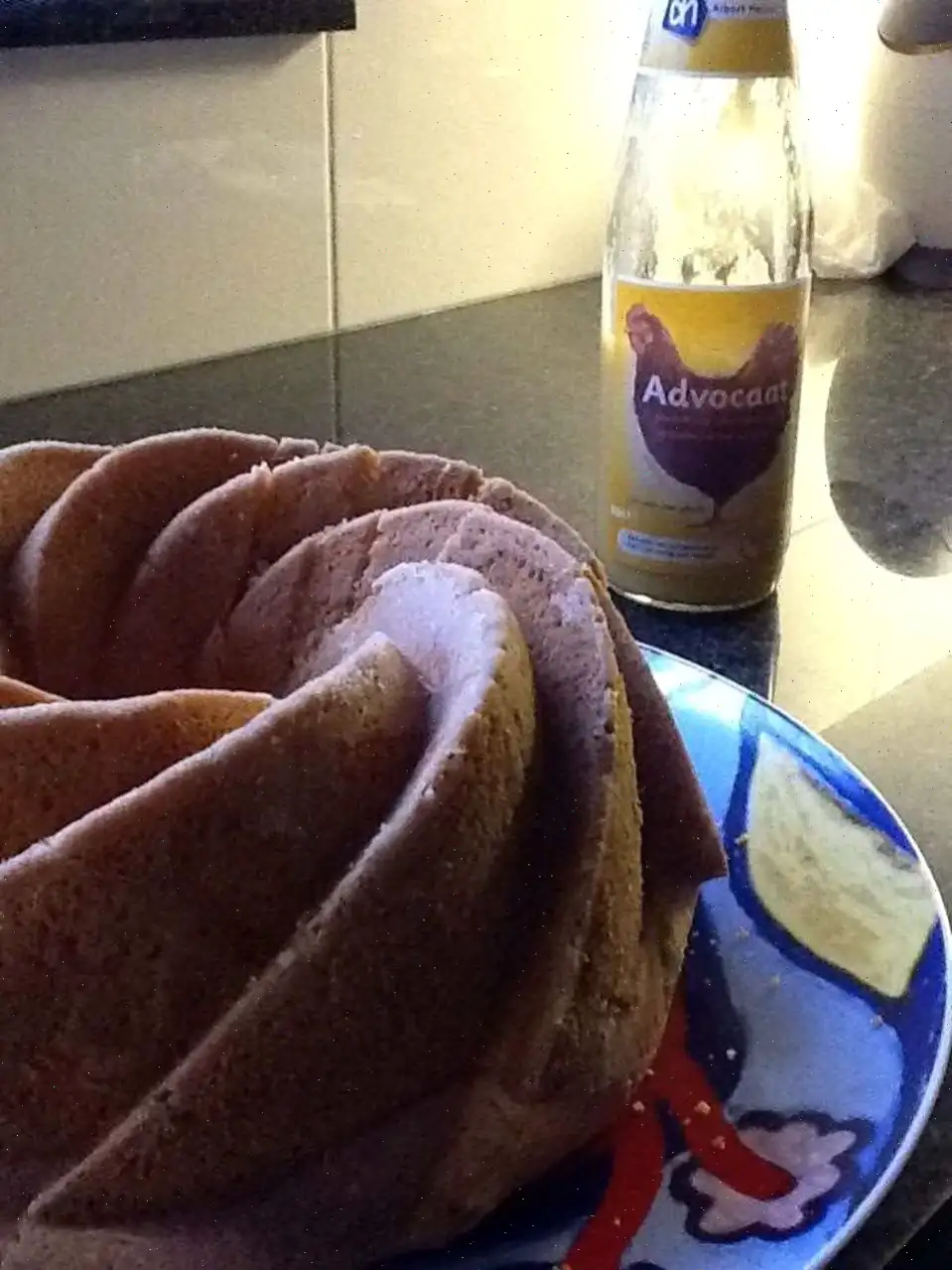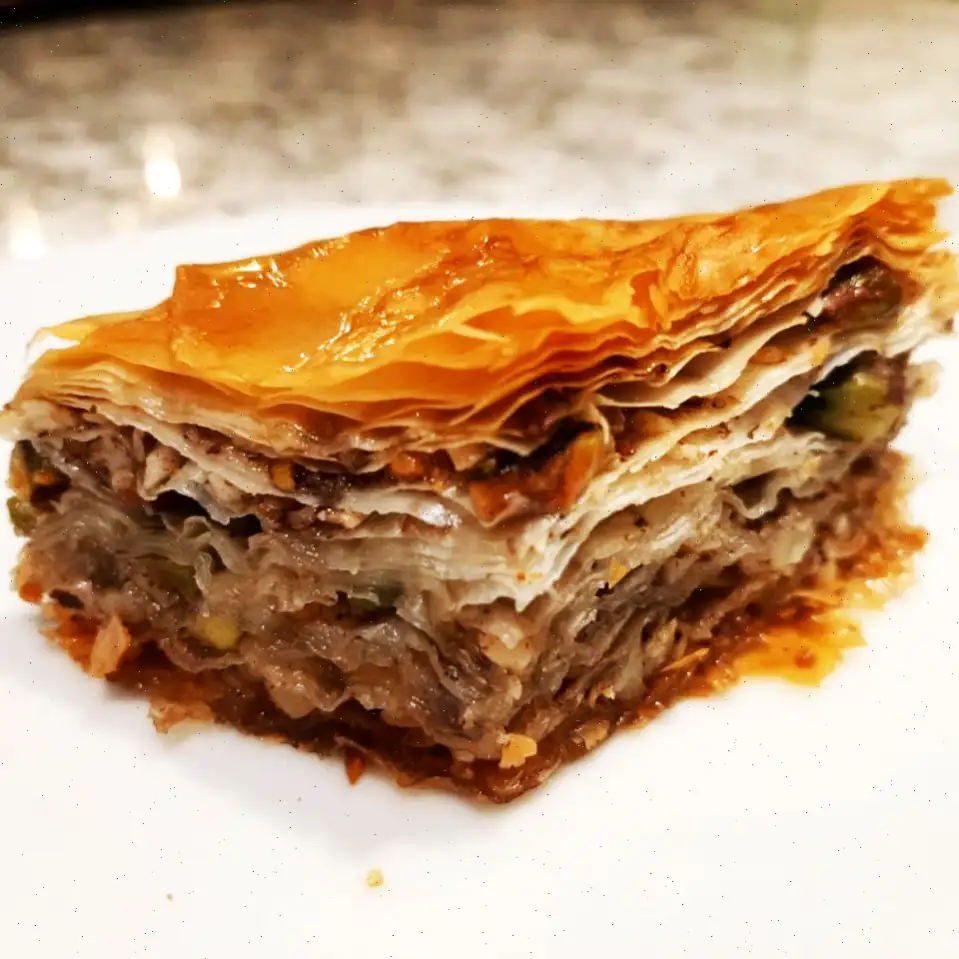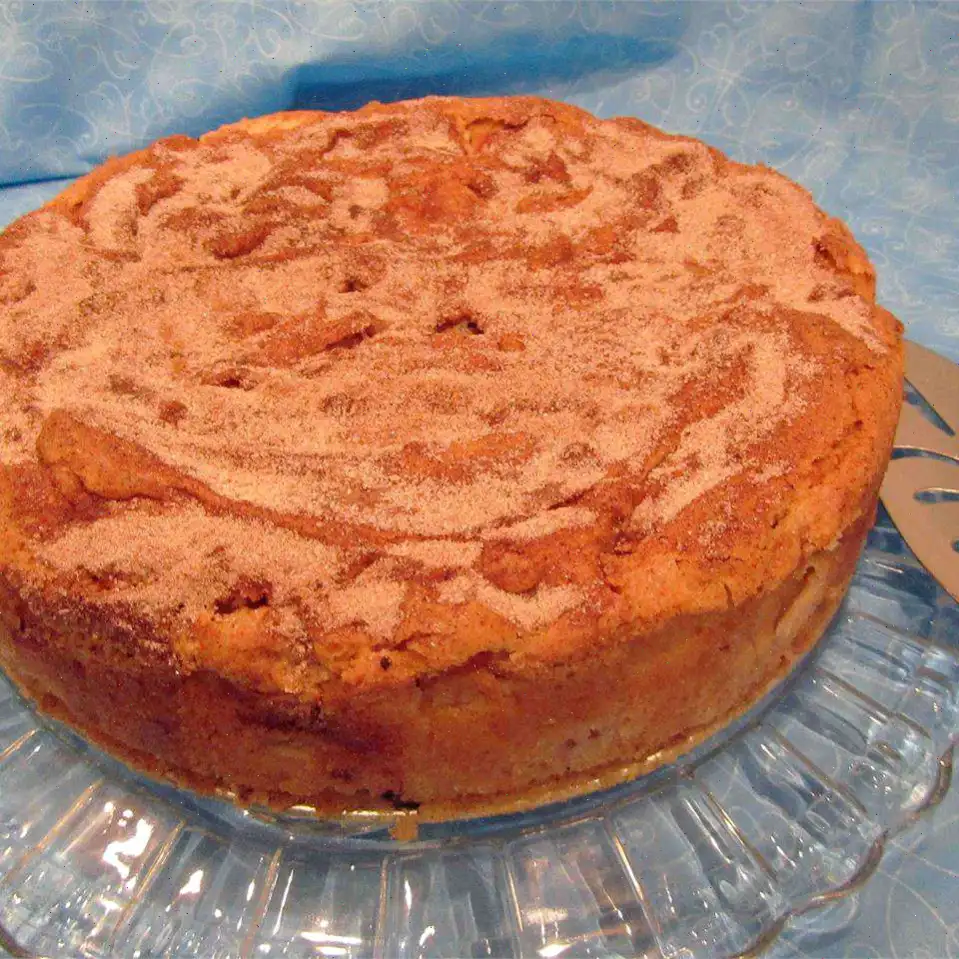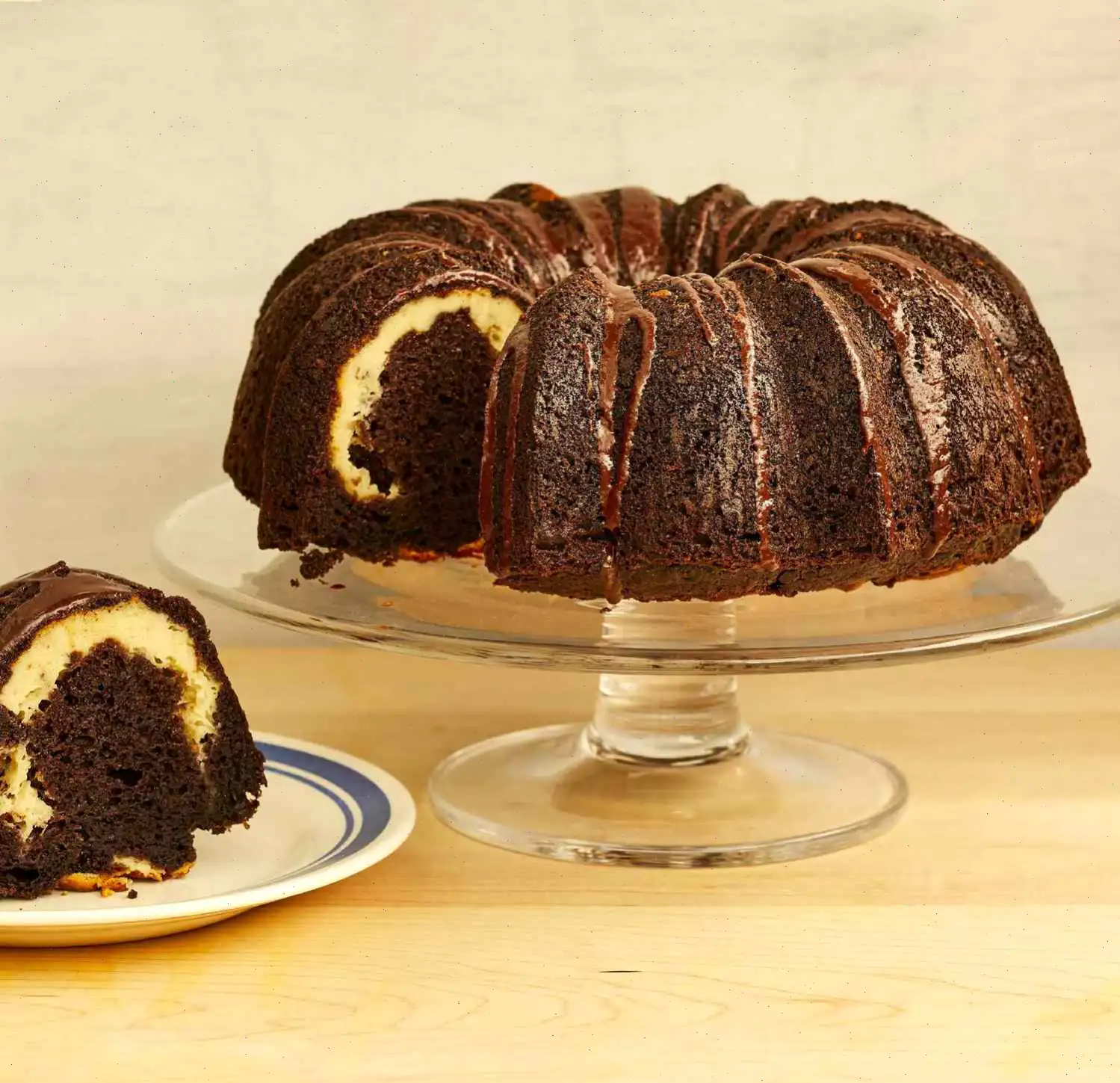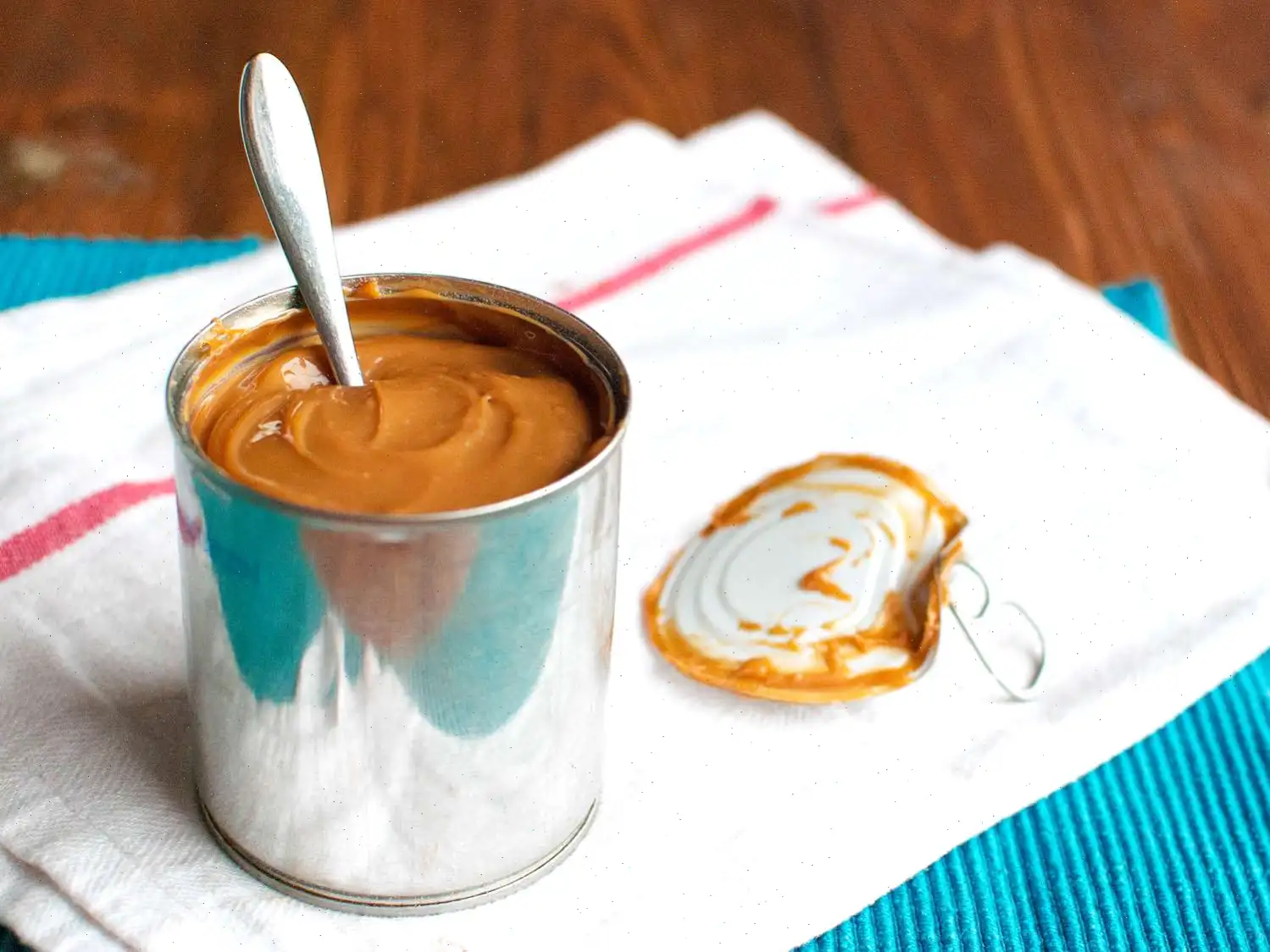
German Advocaat Cake
Ingredients
- 1 cup sunflower seed oil
- 1 tablespoon sunflower oil
- 1 cups white sugar
- 5 large eggs, at room temperature
- 1 cup advocaat egg liqueur
- 1 tablespoon advocaat egg liqueur
- 2 cups all-purpose flour
- 3 teaspoons baking powder
Directions
Step 1: Preheat the oven to 350F (175C). Grease a Bundt cake pan with butter or non-stick spray.
Step 2: In a large mixing bowl, beat together sunflower seed oil, white sugar, and eggs using an electric mixer. Continue mixing until the ingredients are well combined and the mixture is smooth.
Step 3: Gradually add 1 cup of advocaat egg liqueur into the batter, mixing continuously until fully incorporated.
Step 4: In a separate bowl, combine the all-purpose flour and baking powder. Gently fold the dry ingredients into the wet mixture using a spatula. Be careful not to overmix.
Step 5: Pour the batter into the prepared Bundt cake pan, ensuring it is evenly distributed.
Step 6: Place the pan on the lowest rack of your preheated oven and bake for approximately 50 minutes, or until a cake tester inserted into the center comes out clean.
Step 7: Allow the cake to cool in the pan for about 10 minutes before turning it out onto a wire rack to cool completely.
Cook's Notes
- Advocaat egg liqueur is a brandy-based liqueur with a creamy, eggnog-like consistency, typically made with eggs and sugar. It can be found at many liquor stores or ordered online.
- The recipe was originally developed using metric measurements: 250 ml sunflower oil, 250 g sugar, 250 ml advocaat egg liqueur, and 250 g flour.
- For a more traditional German presentation, use a Kugelhopf Bundt cake pan for this recipe.
Nutrition Facts (per serving)
- Calories: 417
- Total Fat: 25g (31% Daily Value)
- Saturated Fat: 3g (15% Daily Value)
- Cholesterol: 93mg (31% Daily Value)
- Sodium: 182mg (8% Daily Value)
- Total Carbohydrate: 45g (16% Daily Value)
- Dietary Fiber: 1g (3% Daily Value)
- Total Sugars: 25g
- Protein: 6g (11% Daily Value)
- Calcium: 98mg (8% Daily Value)
- Iron: 2mg (10% Daily Value)
- Potassium: 61mg (1% Daily Value)
* Percent Daily Values are based on a 2,000 calorie diet. Your daily values may be higher or lower depending on your calorie needs.
** Nutrient information is not available for all ingredients. Amounts are based on available nutrient data. If you are following a medically restrictive diet, please consult your doctor or registered dietitian before preparing this recipe for personal consumption.
The German Advocaat Cake is a delightful dessert rooted in the culinary traditions of Germany, particularly popular during festive seasons such as Easter. This cake is distinctively made with advocaat, a creamy, brandy-based liqueur that adds both richness and a unique flavor to the cake. With its luxurious texture and festive appeal, it has become a staple in many German households during celebrations.
History and Origins
The origin of advocaat dates back to the 17th century in the Netherlands, where it was initially created as a medicinal drink made with eggs, brandy, and sugar. Its name comes from the Dutch word advocaat, meaning "advocate" or "lawyer," as it was believed to have been enjoyed by legal professionals in the past. The liqueur eventually made its way into German kitchens, where it became a popular ingredient in baking. The German Advocaat Cake, as we know it today, is a relatively modern invention, combining the rich flavors of advocaat with the lightness of a Bundt cake.
Regional Characteristics
While advocaat is a liqueur that can be found in various parts of Europe, the German Advocaat Cake is a true reflection of Germanys love for rich, egg-based desserts. The Bundt cake, or "Kugelhopf," is a traditional German cake mold, and its shape and texture have been perfected over centuries. In Germany, cakes like these are often served during special holidays like Easter, where the combination of indulgent flavors and festive presentation makes them a centerpiece at family gatherings.
Differences from Similar Cakes
Though the German Advocaat Cake may appear similar to other Bundt cakes, the key differentiator lies in the use of advocaat. This liqueur imparts a distinct eggnog-like flavor, making the cake richer and more aromatic compared to standard fruitcakes or sponge cakes. Additionally, the use of sunflower oil gives the cake a moist and dense texture, contrasting with the lighter crumb of more traditional cakes. The presence of alcohol also sets this dessert apart, adding a touch of warmth and depth to the flavor profile.
Where is the German Advocaat Cake Typically Served?
This cake is often served during festive occasions, especially during the Easter season in Germany. The smooth, creamy texture of the advocaat makes it a fitting treat for celebrations. In some regions, it is also enjoyed as a dessert at weddings or special family gatherings. Its moistness and rich flavor make it ideal for pairing with coffee or tea. The cake's celebratory nature makes it a perfect addition to any dessert table, especially during the colder months when comfort foods are most desired.
Fun Facts
- Advocaat was once thought to have medicinal properties due to its high egg content and alcohol base.
- In the Netherlands, advocaat is often enjoyed as a traditional Christmas drink, but in Germany, its used more frequently in baking.
- While most cakes rely on butter for richness, the German Advocaat Cake uses sunflower oil, which not only helps in keeping the cake moist but also gives it a slightly nutty flavor.
- Despite its relatively recent invention, the German Advocaat Cake has quickly gained popularity beyond Germany, especially in other parts of Europe and the United States.
Whether you're looking to try something new for your next family gathering or want to experience a classic German treat, the German Advocaat Cake is sure to satisfy. With its rich, flavorful layers and festive appeal, this cake brings a taste of Germanys culinary heritage to your table.


